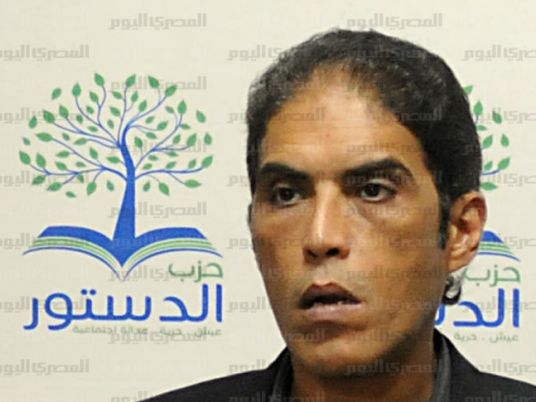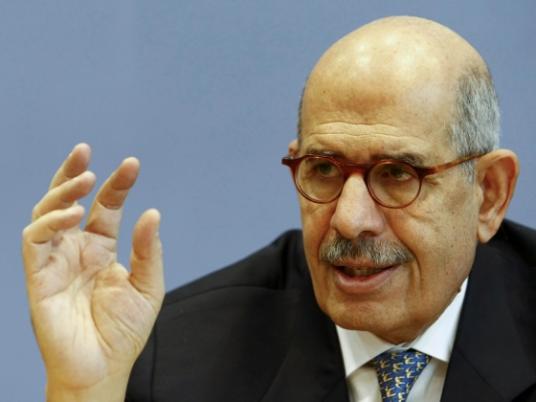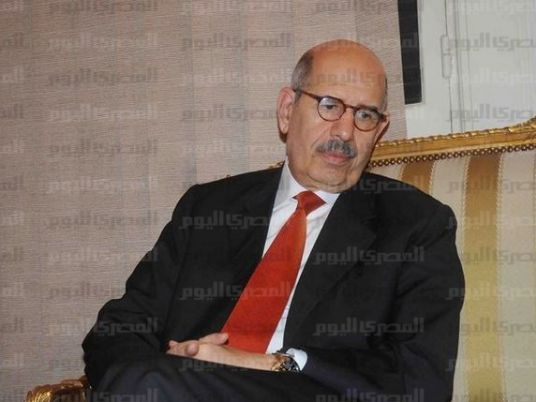Al-Ahram tops its front page with coverage of the “Hizbullah cell” trial, which concluded Wednesday with prison sentences ranging from six months to life. Four of the 26 defendants, including the alleged ringleader, are still on the run and were tried in absentia.
The verdict by the Supreme State Security Court can not be appealed and can only be overturned by a decree from President Mubarak.
The defendants were convicted of operating as a cell for the Lebanese militant group, funneling weapons to resistance fighters in the Gaza Strip, and plotting attacks against tourists in Egypt and ships crossing the Suez Canal.
Several of the convicted men, and Hizbullah leader Sheikh Hassan Nasrallah, have admitted to smuggling weapons, claiming they were aiding the Palestinian cause. But they strongly deny the latter allegations.
Al-Ahram’s story extensively quotes lead judge Adel Abdel Salaam Gomaa, who made it clear that he didn’t believe their defense.
“Does this support include gathering information on the villages, cities and major roadways of the North and South Sinai governorates,” Gomaa said. “And does this support for the Palestinian cause include targeting tourists? And renting apartments overlooking the Suez Canal? And does it include manufacturing explosive devices?”
In other news, President Mubarak is back in his familiar spot on the front page of Al-Ahram, sitting on a beige arm chair speaking to a fellow leader. Today it is Iraqi politician Iyad Allawi, whose bid to become prime minister for the second time is on hold pending a lengthy national recount of the vote.
Al-Shorouq leads with both the Hizbullah trial and two stories regarding Egypt’s confrontational negotiations with the Nile Basin states. For months, Cairo has been fending off demands from upstream African countries for a larger share of the Nile’s water. Egypt and Sudan currently claim the majority of the Nile’s flow, citing an agreement signed in the 1929 when the Middle East was under British control.
Al-Shorouq’s coverage includes a pessimistic message from Minister of Water Resources Mohamed Nasreddin Allam, who announced that negotiations are not going well. A second story notes that President Mubarak asked about Israel’s role in the issue during his recent meeting with Israeli Prime Minister Benjamin Netanyahu. Israel has been consistently rumored to be stirring up opposition to Egypt among upstream Nile Basin countries.
Al-Dostour tops its front page with details on potential presidential candidate Mohamed ElBaradei’s meeting Monday with hundreds of Egyptian-Americans in Boston. The headline takes the form of a Q&A, presenting a collection of questions asked by the audience and ElBaradei’s responses.
Q: Will you nominate yourself for president?
A: My goal is change and not to attain power.
Q: Should we ask America to help us achieve democratic reform in Egypt?
A: Change will come from ourselves without anyone’s assistance.
Q: Do the (proposed) constitutional amendments mean the Muslim Brotherhood could win presidential elections?
A: Yes
Egypt’s newspapers:
Al-Ahram: Daily, state-run, largest distribution in Egypt
Al-Akhbar: Daily, state-run, second to Al-Ahram in institutional size
Al-Gomhorriya: Daily, state-run
Rose el-Youssef: Daily, state-run, close to the National Democratic Party’s Policies Secretariat
Al-Dostour: Daily, privately owned
Al-Shorouq:Daily, privately owned
Al-Wafd: Daily, published by the liberal Wafd Party
Al-Arabi: Weekly, published by the Arab Nasserist party
Youm7: Weekly, privately owned
Sawt el-Umma: Weekly, privately owned



